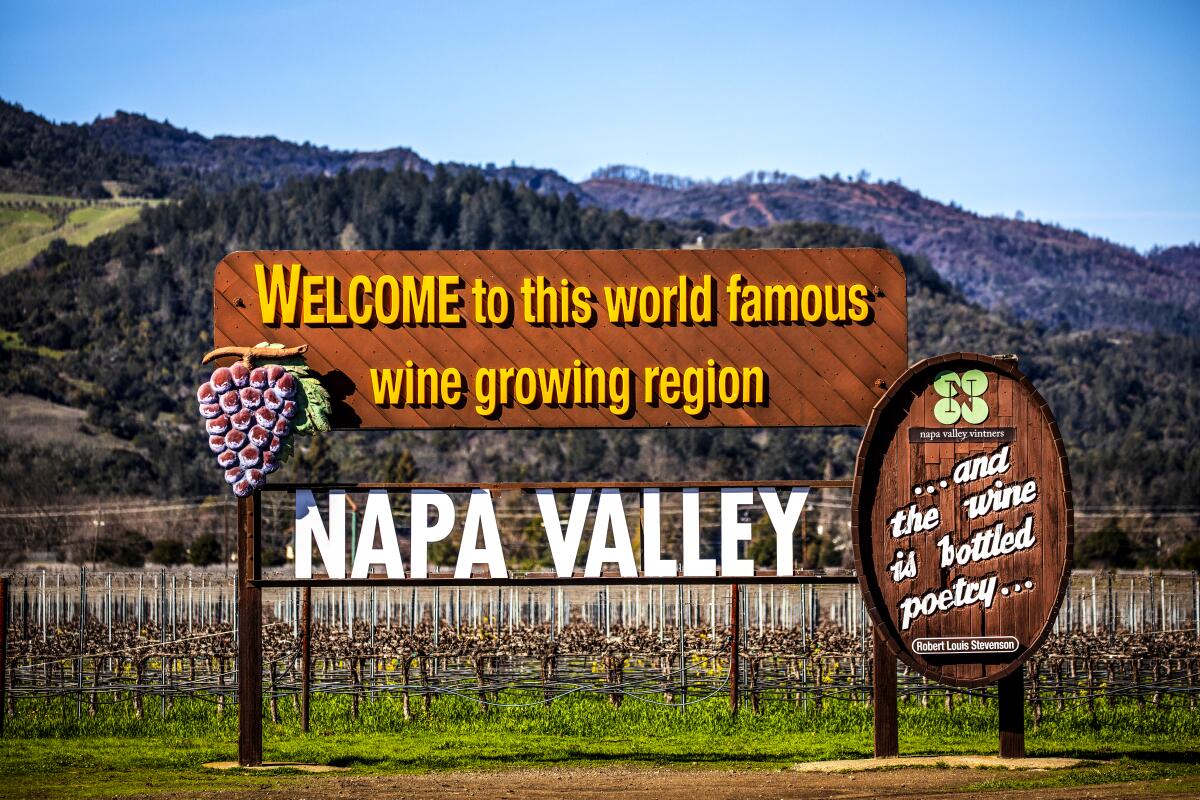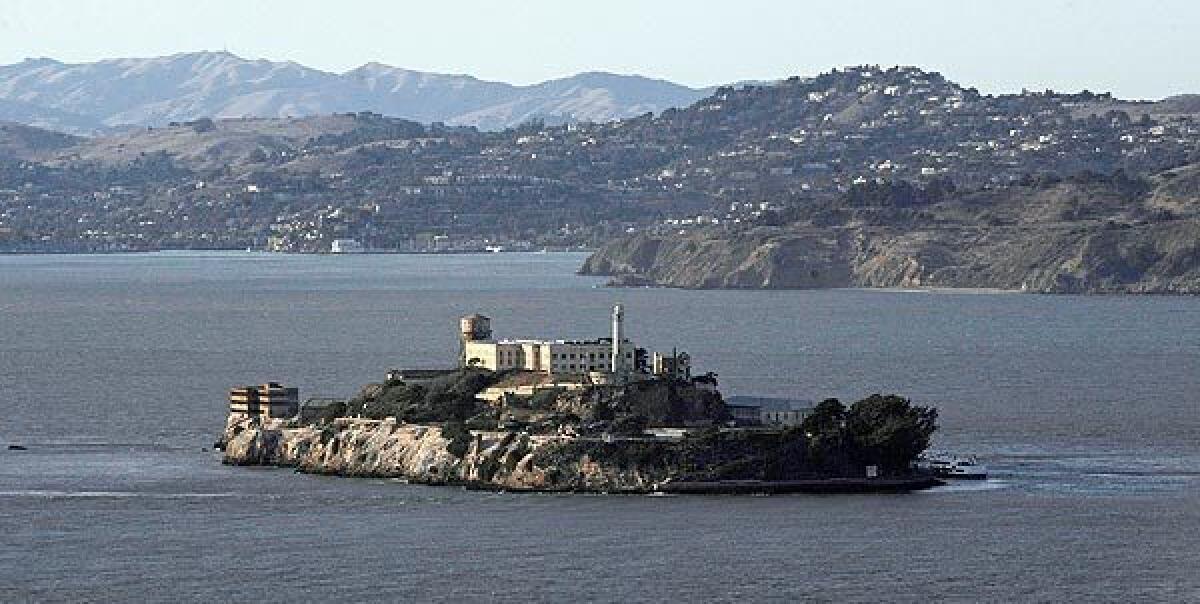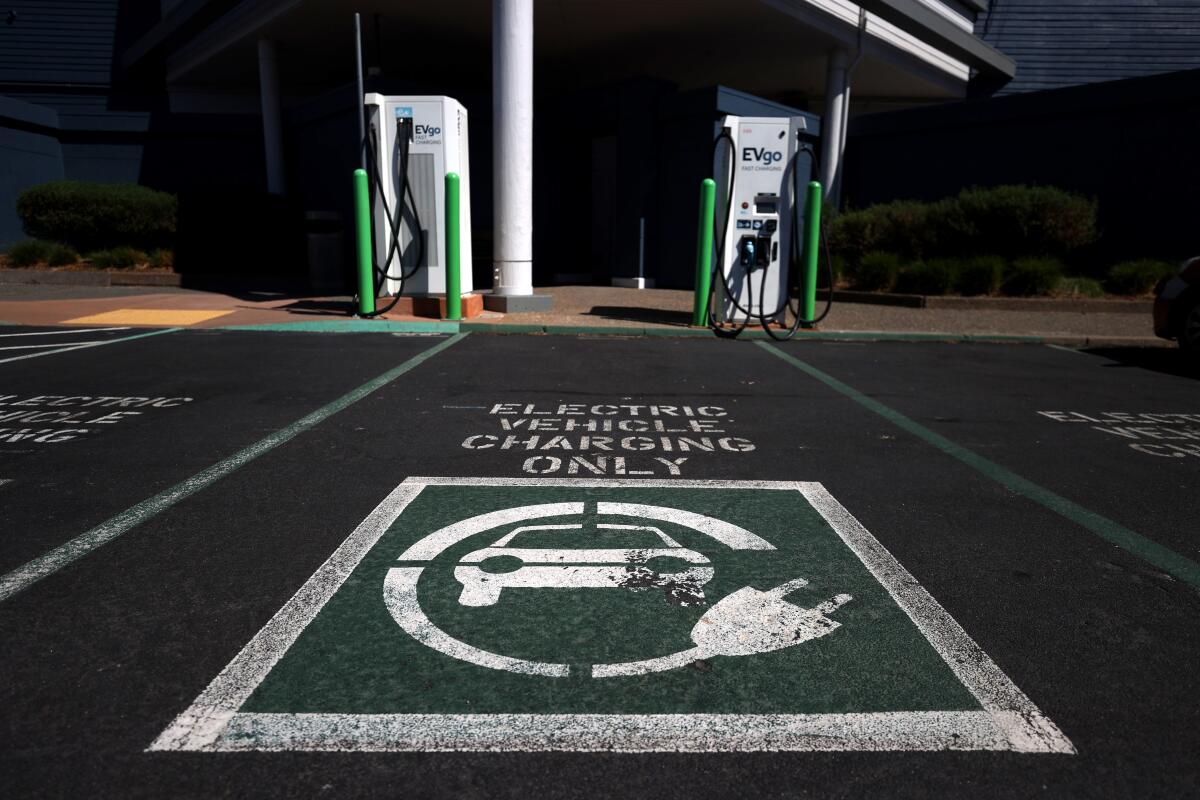
Good morning. It’s Thursday, March 21. Here’s what you need to know to start your day.
Newsletter
Start your day right
Sign up for Essential California for news, features and recommendations from the L.A. Times and beyond in your inbox six days a week.
You may occasionally receive promotional content from the Los Angeles Times.
Several Trump campaign promises would conflict with California policies
Buckle up. The general election matchup between President Biden and former President Trump is set. And when he looks west, Trump promises to reshape California if he wins a second term.
Throughout his campaign, Trump has lambasted California — portraying the state as a dystopian failure brought about, he claims, by Democratic policies.
“It has become a symbol of our nation’s decline,” he told California Republicans last year.
Times columnist Doyle McManus took a look at Trump’s rhetoric and vows about the Golden State and wrote about what might be in store. Here are three of McManus’ takeaways:
Trump pledges to send law enforcement officials into California
McManus writes:
Trump says he’ll send federal law enforcement officers into Oakland and other cities to stop rampant shoplifting. “If you rob a store, you can fully expect to be shot as you are leaving that store — shot!” he said.
McManus adds:
He says he’ll close the U.S.-Mexico border on his first day in office — the day he has set aside to act as “a dictator” — and launch “the largest domestic deportation operation in American history.”
His Santa Monica-born immigration advisor, Stephen Miller, says that if Democratic states such as California don’t cooperate, Trump could order National Guard units from red states such as Texas to cross their borders — a recipe for constitutional crisis.
Trump is focusing on California’s renewable energy, fuel standards and water supply.
McManus writes:
Trump has promised to scrap President Biden’s programs to promote renewable energy, including subsidies for electric vehicles and charging stations. His advisors have proposed limiting California’s power to set fuel emission standards for automobiles.
He says he’ll stop the state from allowing Sacramento River water to flow into the Pacific to protect the Sacramento Delta. “We’re not going to let them get away with that any longer,” he said. (Water experts say it would be impractical and environmentally disastrous to divert the river’s flow completely. Newsom has already suspended some environmental laws to send more water to reservoirs and is preparing to build a new water tunnel under the delta.)
Trump’s team may be better prepared this time around.
McManus writes:
His first term was launched with little preparation and no detailed transition plan. This time, he’s likely to appoint a more thoroughly Trumpified White House staff and Cabinet, with fewer moderates applying the brakes.
The Supreme Court, with three Trump appointees in its six-seat majority, is friendlier too.
And pro-Trump policy wonks have already produced a 920-page handbook of policy proposals for a second Trump term, “Project 2025.”
Those proposals suggest that a second Trump term, like the first, would produce major collisions between the White House and California’s Democratic-run state government, McManus writes.
“If campaign promises have any meaning, you’re looking not just at a second term; you’re looking at Trump on steroids,” Larry Gerston, an emeritus professor of political science at San Jose State University, told McManus. “The impact on California would be very real.”
Some of Trump’s proposed ideas may still be difficult to carry out, Donald F. Kettl of the University of Texas, an expert on federal-state relations, told McManus.
But Kettl had a warning: “At the end of the first Trump term, there was frustration among his aides that they had finally figured out what they wanted to do, but ran out of time. They’ve spent four years planning, learning from their mistakes and compiling an action plan.”
Today’s top stories
The transition to electric vehicles
High speed rail in California
Texas’ controversial immigration law
‘Quiet on Set’ docuseries
Kate Middleton saga
Jonathan Majors lawsuit
More big stories
Get unlimited access to the Los Angeles Times. Subscribe here.
Today’s great reads

A welcome sign greets visitors along Highway 29 in storied Napa Valley.
(Jay L. Clendenin / Los Angeles Times)
Mystery among the vines: Why is the FBI probing some of Napa Valley’s fanciest wineries? As the mystery swirls, one thing is clear: The federal probe comes amid a bitter divide among longtime vintners and residents over Napa Valley’s future.
Other great reads
How can we make this newsletter more useful? Send comments to essentialcalifornia@latimes.com.
For your downtime
Going out
Staying in
And finally … from our archives

Alcatraz Prison occupies an island of the same name in the middle of San Francisco Bay. It’s now operated as a historical site and tourist attraction.
(Matt Campbell / EPA)
On March 21, 1963, Alcatraz prison, which held some of the most dangerous civilian prisoners — including Al Capone and Robert Stroud, the “Birdman of Alcatraz” — was closed.
“Known as ‘the Rock,’ the 12-acre penal island was notorious for its cramped cells and rigid discipline that at times demanded total silence,” former Times writer John Glionna wrote.
Decades after the prison closed, all that remains is the lore of the desperate men once locked up here.
Have a great day, from the Essential California team
Anthony De Leon, reporting fellow
Kevinisha Walker, multiplatform editor
Stephanie Chavez, deputy metro editor
Check our top stories, topics and the latest articles on latimes.com.

